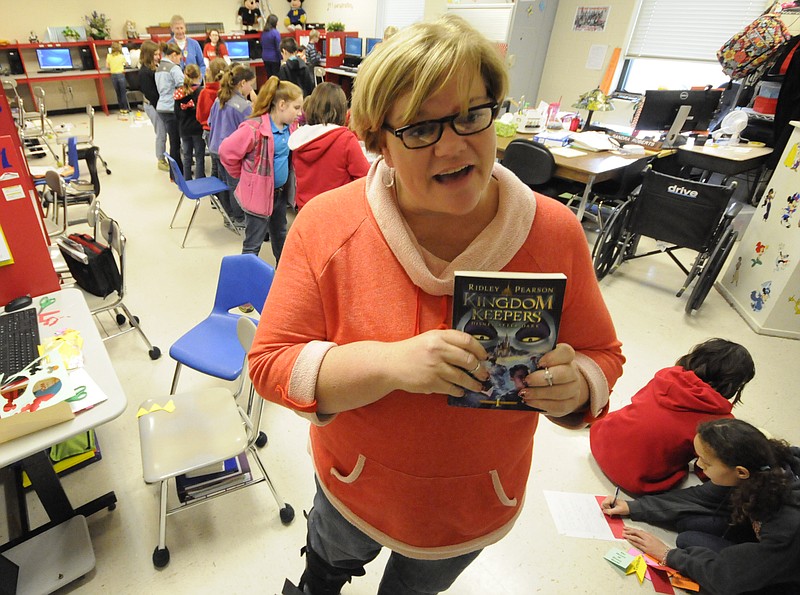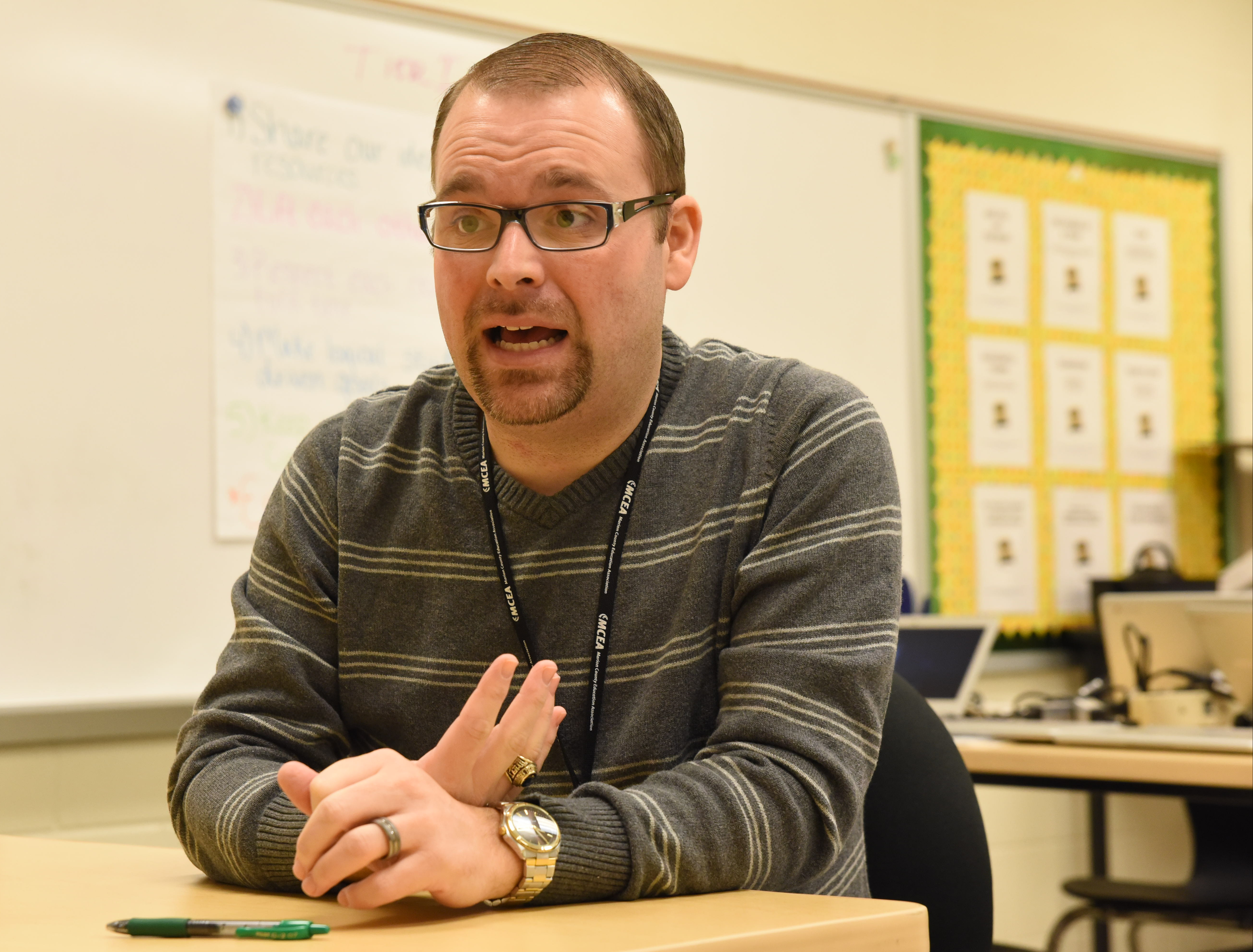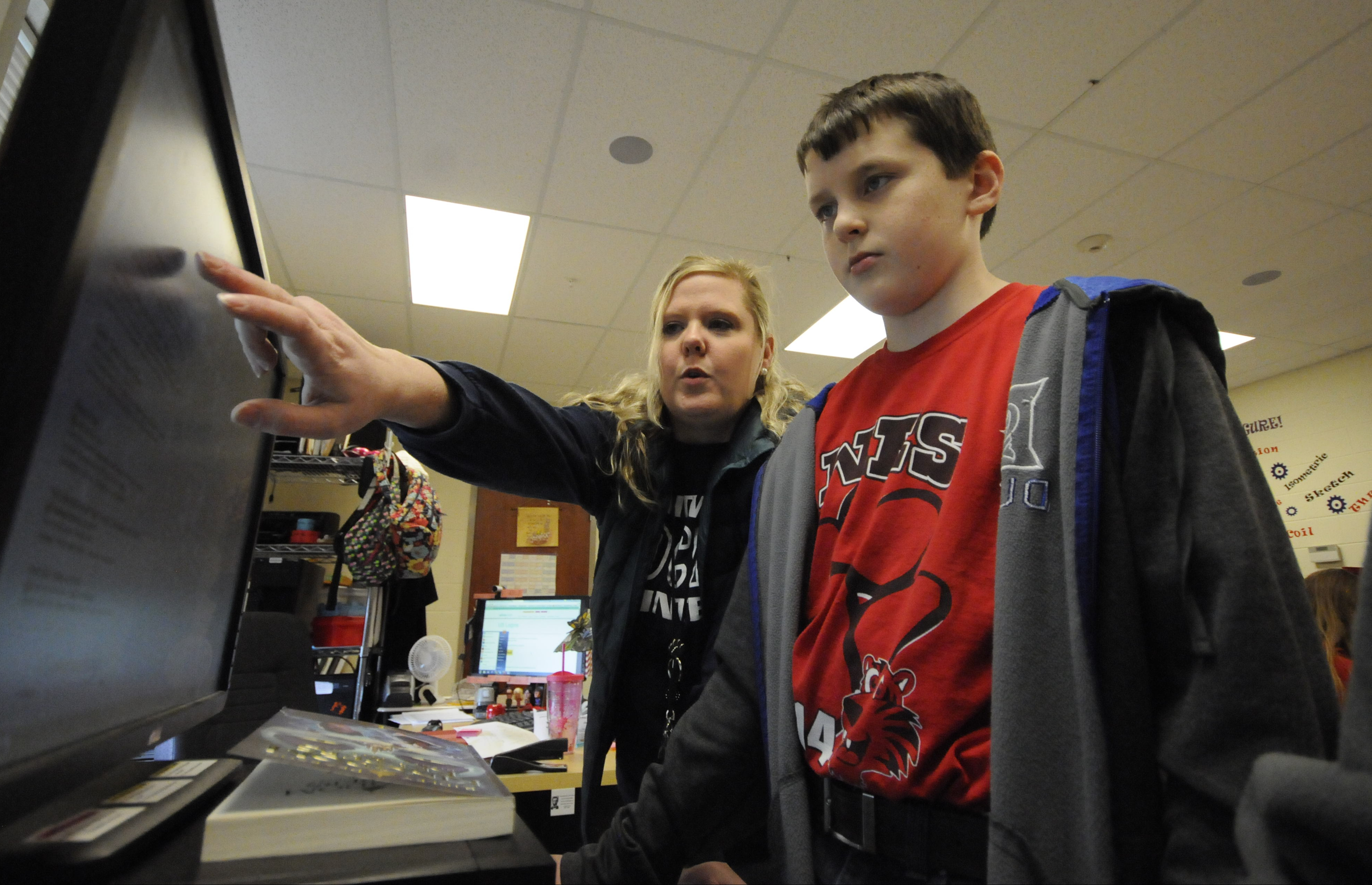WHITWELL, Tenn. -- Fifty seventh- and eighth-graders from Whitwell Middle School will travel to Disney World in May. But they won't just be getting on the rides for fun.
The students will learn about science, in part by getting on rides in the park from 6-9 a.m., before it opens to the general public, and measuring the G-forces they experience.
Whitwell Middle School garnered widespread attention for its collection of millions of paper clips that eighth-graders began gathering in 1998 as a way to get their heads around the enormity of the Holocaust through a physical object. The paper clip was chosen partly because Joseph Valler, a Norwegian Jew, has been credited with its invention.
Now, the innovative school has embraced a new state initiative, called the Response to Instruction and Intervention (RTI2), which aligns with Common Core state standards.
All Tennessee elementary schools had to adopt the new instructional method this year. Middle schools need to comply in the next school year, and high schools have to participate two school years from now.
RTI2 has drawn fire from some quarters as yet another unfunded state mandate that will make teachers' lives harder.
Officials at Whitwell Middle say they're proud of the way they've implemented the program, which the state board of education adopted in 2013 to change the way students are placed in special education programs.
Historically, students went to special education after they showed significant discrepancies between their intellectual ability and achievement, says a 90-page state manual explaining the new program.
One problem with that "wait to fail" approach, the state says, is that the discrepancies often didn't show up until third grade.
"Schools can no longer wait for students to fail before providing intervention," the manual says.
Under RTI, schools need to test their students and for 37 weeks place them in one of three tiers: Tier I is for what the state says should be the 80 percent of students who meet or exceed grade-level standards; Tier II, for the 10 to 15 percent of students who are about a year behind; and Tier III, for the 3 to 5 percent of students who are more than a year and a half behind their classmates.
Whitwell Middle School has already adopted RTI2 for its fifth, sixth, seventh and eighth grades.
"Our teachers are actually excited about it," Assistant Principal Joshua Holtcamp said. "It's something we had to do. If we're going to do something, we're going to do it the best we can."
Every staff member with a teaching certificate, including Holtcamp and school Principal Kim Headrick, pitches in to help when a 45-minute RTI period rolls around each day for the different grades.
During a Tier II session Friday, math teacher Morgan Pittman read aloud to a class of fifth-graders who followed along with their own copies of the children's book, "Because of Winn-Dixie."
Pittman fired off questions about the book, which is geared for third-graders, and called on students for answers.
"She could stick a tire in the ground and grow a car. Is that actually true?" Pittman asked.
"No!" the group replied.
Meanwhile, fifth-graders in the Tier I group for the most advanced students filled teacher Sandy Roberts' computer lab, doing research and putting together booklets about Disney World that seventh- and eighth-graders will take along on their trip in May.
The Tier I students have also done yoga, learned to play handbell-like tone chimes and "mystery Skyped" far-off middle schools, using the video calling program to ask such questions as "Are you east of the Mississippi River?" to guess the other school's location.
"Our goal is to challenge them," Roberts said, as students scrambled between researching at computers and putting the booklets together on tables. "This is, like, the best part of our day. The kids are in charge of their learning here."
A Tier III group of eight fifth-graders, who need the most remedial work, were learning basic phonics and vowel sounds from Kirsten Long, an English language arts teacher. Dyslexia and other learning disabilities mean some fifth-graders may read at a first-grade level, she said.
"The great thing about RTI is they are in there with students at the same level," Long said. "It's not embarrassing anyone."
Contact staff writer Tim Omarzu at tomarzu@timesfreepress.com or www.facebook.com/tim.omarzu or twitter.com/TimOmarzu or 423-757-6651.


